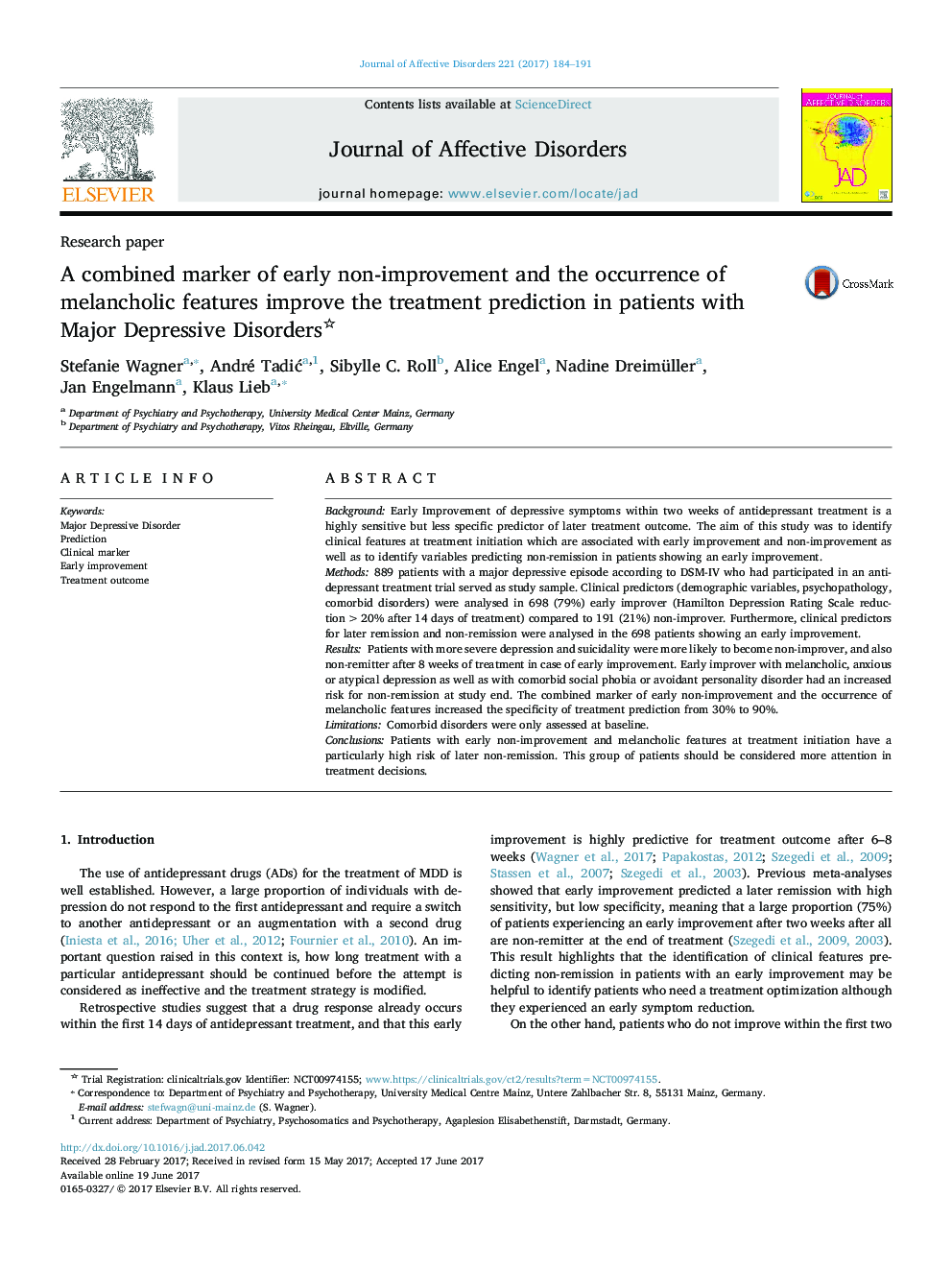| کد مقاله | کد نشریه | سال انتشار | مقاله انگلیسی | نسخه تمام متن |
|---|---|---|---|---|
| 5722006 | 1608104 | 2017 | 8 صفحه PDF | دانلود رایگان |

- Early improvement frequently occur independent of the applied antidepressant agent.
- A large proportion of early Improver became non-remitter at the end of treatment.
- Clinical predictors help identifying early Improver with high risk for non-remission.
- Early improver with melancholic, anxious or atypical features often got non-remitter.
- Using the markers may lead to better treatment outcome in a shorter period of time.
BackgroundEarly Improvement of depressive symptoms within two weeks of antidepressant treatment is a highly sensitive but less specific predictor of later treatment outcome. The aim of this study was to identify clinical features at treatment initiation which are associated with early improvement and non-improvement as well as to identify variables predicting non-remission in patients showing an early improvement.Methods889 patients with a major depressive episode according to DSM-IV who had participated in an antidepressant treatment trial served as study sample. Clinical predictors (demographic variables, psychopathology, comorbid disorders) were analysed in 698 (79%) early improver (Hamilton Depression Rating Scale reduction > 20% after 14 days of treatment) compared to 191 (21%) non-improver. Furthermore, clinical predictors for later remission and non-remission were analysed in the 698 patients showing an early improvement.ResultsPatients with more severe depression and suicidality were more likely to become non-improver, and also non-remitter after 8 weeks of treatment in case of early improvement. Early improver with melancholic, anxious or atypical depression as well as with comorbid social phobia or avoidant personality disorder had an increased risk for non-remission at study end. The combined marker of early non-improvement and the occurrence of melancholic features increased the specificity of treatment prediction from 30% to 90%.LimitationsComorbid disorders were only assessed at baseline.ConclusionsPatients with early non-improvement and melancholic features at treatment initiation have a particularly high risk of later non-remission. This group of patients should be considered more attention in treatment decisions.
Journal: Journal of Affective Disorders - Volume 221, 15 October 2017, Pages 184-191